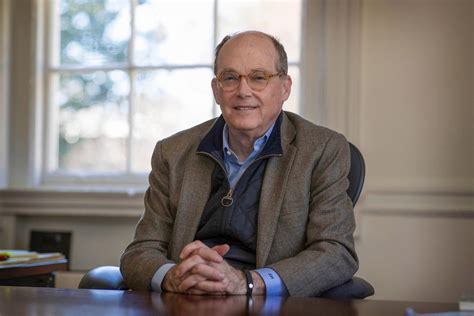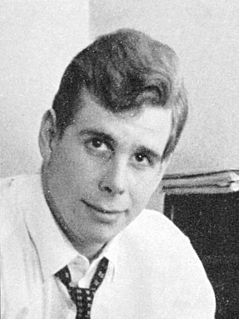A Quote by Marlene Caroselli
leaders seem to have a high tolerance for ambiguity. Recognizing that the brain does not work in a completely linear fashion, leaders demonstrate a comfort with the chaos of exploding ideas, many of them seemingly unrelated to the stimulus that caused them.
Related Quotes
Leaders should get out of their comfort zone but stay in their strength zone. When their work lies within their natural gifting and strengths, leaders experience the greatest return in productivity and contentment. Life is too short to live in the comfort zone, where growing and accomplishing and achieving your potential takes a back seat. I suggest you refocus if the comfort zone is your leadership priority.
When leaders claim that God bypasses their followers and speaks directly to them, they greatly diminish all God does through the lives of believers.Leaders who begrudge people the opportunity to seek God themselves and who do not actively teach their people how to hear God's voice have disqualified themselves as spiritual leaders.
Leaders who carry unresolved guilt are forced to hide a part of themselves from those to whom they are closest. They have a secret. They are forced to expend time and energy to ensure that no one finds them out. They know they are not completely trustworthy. Often they assume no one else is either. Guilty leaders have a difficult time trusting. Consequently, guilty leaders have a difficult time building teams.
I think leaders lead themselves, but leaders have ideas and maybe they're visionary ideas. Probably today, people would say Steve Jobs was a visionary because he invented this little gadget, the cell phone. But he didn't invent cell phones, and he didn't design the cell phone. He just took a couple of ideas and put them together, and no one else put those same ideas together as successfully as he did. But he had something that he was trying to do that intrigued him, and he could do it very well.
Leaders cannot work in a vacuum. They may take on larger, seemingly more important roles in an organization, but this does not exclude them from asking for and using feedback. In fact, a leader arguably needs feedback more so than anyone else. It's what helps a leader respond appropriately to events in pursuit of successful outcomes.
In the face of ambiguity, uncertainty, and conflicting demands, often under great time pressure, leaders must make decisions and take effective actions to assure the survival and success of their organizations. This is how leaders add value to their organizations. They lead them to success by exercising good judgment, by making smart calls when especially difficult and complicated decisions simply must be made, and then ensuring that they are well executed.






























